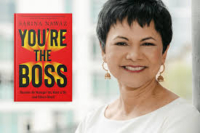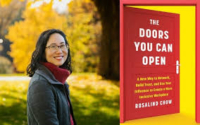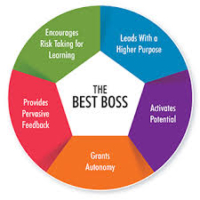
Almost forty years ago, I attended a three day workshop that changed my life.
I didn’t expect anything like that to happen when I read the six word invitation–reality tells me what to do.
How could we spend a full weekend discussing six words whose meaning seemed so obvious?
Boy, was I wrong. That retreat led me to pull together a whole bunch of ideas that had been at the heart of my work for my first forty years and have given me a new focus in the thirty-seven years since that trip to the foothills overlooking Santa Cruz CA—paradigm shifts, systems theory and complexity science, taking personal responsibility for social change, addressing wicked problems, and more.
So, whenever some weird, new, and/or surprising events throw me for a loop, I go back to that weekend and ask myself what is this new reality telling me to do now?
Last Week
That kind of delightful disruption hit me a few times last week while I was also editing a chapter from my book that has reality tells me to do as its title.
The events were all over the map as befits the intellectual life of someone whose work is all over the map.
Some of it involved developing a peacebuilding media campaign. Some of it involved the work Gretchen and I do with Rotary. Some of it involved the mentoring I do with young peacebuilders and social change activists in which I actually end up learning more than the young people I so enjoy working with.
There was one common denominator that popped up near the end of the week when I had a long talk with Ania Szczesniewski of the Next Big Idea Club. We ostensibly got together to talk about plans for a discussion of Sabina Nawaz’s You’re the Boss which we are leading for members of the club on Thursday.
 But as I’m discovering in my discussions with her, we went a lot farther and got to everything from questions of faith and spirituality to her (very large) dog who chose not to take part in our Google Meets session. She also mentioned Rosalind Chow’s The Doors You Can Open which I read over the weekend because it complements Nawaz’s book.
But as I’m discovering in my discussions with her, we went a lot farther and got to everything from questions of faith and spirituality to her (very large) dog who chose not to take part in our Google Meets session. She also mentioned Rosalind Chow’s The Doors You Can Open which I read over the weekend because it complements Nawaz’s book.
The two together along with the questions Ania raised took me back to what reality is telling me to do when in comes to teaching and learning as well as leading (polite for her interest in bossing bossing) and sponsoring (the term Chow uses for the doors we can open for others).
Among other things, Ania got me thinking about my very first class at Colby College almost exactly fifty years ago which took me back to the interplay between teaching and learning along with leading through serving others that have been part of my personal career and growth for all that time.
In other words, what reality was telling me to do in September 1975 still resonates with what it is telling me to do in May 2025.
Ania assumed that I knew it all already.
Nothing could be farther from the truth. Shifts in what reality is telling me to do happen all the time and I’m lucky to have enough of “my marbles” left to be able to take advantage of them.
And as the disjointed nature of what follows suggests, this one is still a work in progress.
Teachers Learn because Learners Teach
Both Nawaz and Chow are teachers. Nawaz does most of her teaching one-on-one with the people who hire her as a professional coach. Chow spends a lot of her time in formal classrooms given her day job as a business professor at Carnegie Mellon.
Although neither of them frames her argument in terms of teaching and learning, I couldn’t help but think about their books through a classroom lens because I literally realized at the end of my first class that the best teachers learn from their students because their students teach them back—at least if we are open enough to “hear” them.
In my case, I can literally point to a specific moment. At the end of my first class at Colby, one of the students came up and asked if I had been his camp counselor when he was ten.
Sure enough. Mark had been in my cabin at YMCA Camp Hazen (where I had been a camper myself while Mark was in diapers). He had been a terrific camper who became unforgettable when he won a long distance swimming contest despite seemingly not being all that athletic and showed some grit and determination that I hadn’t even dreamt of beforehand. He had such an impact on me that as the librettist for an opera a few us wrote about the fire that destroyed the camp’s dining hall the following summer, I loosely based the hero, Goody Camper, on him (yes, I was a weird camp counselor, though the dining hall really did burn down, and we spent the rest of the summer eating in an army surplus mess tent).
Now, here he was sitting in my classroom and was going to be my advisee to boot. And a lot more conservative than I was—though Mark reminds me that he was always a liberal democrat. Still, I realized that I had a lot to learn if I was going to succeed with this group of preppy students who were now supposed to learn from me. Even more, how did I lead responsibly with a group of students who weren’t going to follow me into the new left or into academia? How was I going to their (classroom) boss in a way that served them well?
Mark and his friends helped me find an early balance between two roles—teacher and learner—because they helped me see that I am at my most effective when I am doing both at the same time. I can have the authority that a teacher or mentor needs to grade papers or even hire and fire people while simultaneously making it clear that I’m there to listen and learn from them.
How I do that has, of course, changed over the years. But, I’ve found ways that allow me to share what I know about everything from French politics to personal growth with people who are open to hearing it while conveying through spoken and unspoken language that I’m also eager to learn from them. I don’t do that very often with college juniors or recovering Hazen campers. I do it instead with conservatives, members of the military, and Evangelical Christians. Because I don’t see a way out of the mess we’re in unless build bridges that allow people who disagree to solve their shared problems together.
I know as well as anyone (I am a political scientist, after all) that the social capital that Chow describes alone won’t be enough. But I do know that something I’ve worked on both as a twenty-seven year old and immature assistant professor and as a seventy-seven year old peacebuilder, it really helps to be both an expert learner and an expert teacher.
Now, having to grapple with the ideas in these two books, I’ve been able to see what I do—and what the people I like and respect do—in a clearer light that others could use even if their personality and values are different from mine.
Good Bosses Use Power to Empower Others
I loved both of these books as separate documents. But, it was only when I started combining the two that I realized how much more I could have accomplished if I had thought along these lines way back in 1975 when Mark and I met for the second time.
 It all comes down to how we understand and use power or, in Nawaz’s terms, become the most effective kind of boss.
It all comes down to how we understand and use power or, in Nawaz’s terms, become the most effective kind of boss.
As a political scientist, I was taught to define power as “A’s ability to get B to do what he or she otherwise wouldn’t do.” Those last three italicized words tell it all. From this perspective, power is something I exert over you (or A does over B). I can’t get you to do what I want unless I at least threaten you with some sort of punishment. Thus, in my early days as a professor, I warned students that I would take a third of a letter grade off for each day they handed a paper in late.
When reading Nawaz’s book, I realized for the umpteenth time that that is not the only way to think about power or being a boss. As she puts it, good bosses listen. They create space for the people they work with. They build successful teams. They empower the people who work for them rather than lording their power over them.
As I learned in that very first class I taught, everything I say or do as the boss (teachers are bosses after all) matters. I found ways to help those students build their own arguments even when—and perhaps especially when—we didn’t agree. I found ways of being able to project my authority when it was deserved and needed (the red pen did help) but also to project my curiosity and even vulnerability when that was appropriate. My students helped me develop ways of minimizing bias by, for instance, grading papers I agreed with separately from those that took a point of view other than mine. I got to know them as whole human beings, not just as students whether we agreed ideologically or not. I even helped my Red Sox loving students that it was not a sin to root for the Yankees. And from there we could get to Vietnam or Nixon or Reagan or nuclear weapons, usually with a smile on our faces. Even if I gave them mediocre grades which I was always willing to explain and even reconsider.
If anything, I’m better at that fifty years later. It’s still OK to root for the Red Sox (or Ohio State). Building the social capital and trust that Chow talks about makes it possible to discuss MAGA, Wokism, climate change, and the other issues of the today in a spirit of good will. My own teaching and learning these days rarely involve professors at podiums or students responding to what they have to say. It happens when I start talking with my grandkids’ friends’ parents at their soccer games or fencing tournaments.
That’s where Chow’s notion of sponsorship comes into play.
I’m known for my networking skills which also got developed early in my Colby days since one of my other early students lived around the corner from me when I was growing up and another was the cousin of one of my best friends from grad school. I love getting to know new people, finding out what makes them tick, and connecting them to other people I know or ideas I know about (as in the event Ania and I are putting later this week).
But I always had some trouble with some academic approaches to networking which felt way too transactional for me. I’ve been too far many mixing events that felt like a version of speed dating in which everyone in the room was trying to score points (or more) with people they wanted to get to know.
I’ve never been that kind of networker. I network for four reasons, each of which revolve around relationship building or, in Nawaz’s terms, being a good boss. First, I enjoy getting to meet new people. Second and more importantly, I find that building networks using the same kind of value system I used in the classroom helps build better teams that get more done. Third, and perhaps most importantly, I go home feeling as if I’ve done something important because the two people I’ve sponsored in Chow’s terms go on to do cool work together. Fourth, although I rarely think about it when I’m teaching, learning, or being my kind of networking boss, paying it forward in these ways has helped me build such amazingly rewarding career that I still love getting to work every day.
Sometimes, it can be as simple as how you make an introduction as I did that same day that Ania and I talked. I had arranged a meeting that included, among others, a new intern in our office whom I had met the day before and a high power entrepreneur who was going to pitch us a project that would take AfP in a whole new direction. They were the only two people on the Zoom call when I got there, and without thinking about it, I pointed out that I knew that both of them were people of color who had been adopted across racial lines. Both of them beamed and found something to talk about before everyone else showed up. Both beamed, in part, because they realized that I wanted them to learn as much from each other as possible.
In short, I try to use my “bossness” as Nawaz would see it (even if she would never use that term) to open doors for others as Chow would see it.
And I have thus benefited enormously from what I have learned from Mark and Ania and everyone in between.
Why This is a First Draft
My job in running the discussion with Ania on Thursday is not to foist these ideas on the people who show up. Rather, I’ve been asked to facilitate a discussion in which I plan to follow one of Nawaz’s key rules for a good boss.
Always wait until at least two other people have spoken before you open your own mouth.
I’m actually hoping that I will mostly ask a few questions, get out of the way while the club members talk, and then Ania and I can pull some of the threads together at the end in the hope that some of the attendees will have ideas we can pursue later on.
In other words, I expect to learn a lot about what I’ve covered in this post and expect to revisit it over the weekend and produce Draft #2.
While writing this, I also realized that I hadn’t checked in with Mark since one of my best friends and closest colleagues who had also been one of Mark’s mentors died a few months ago. Sandy had been a camp counselor, too, with whom we both taught and learned about just about everything under the sun—even though Sandy was a Buffalo Bills fan. So, it’s also time for another visit down the Camp Hazen/Colby College memory lane.
The views and opinions expressed in this article are those of the author and do not necessarily reflect the official policy or position of the Alliance for Peacebuilding or its members.
,,,
